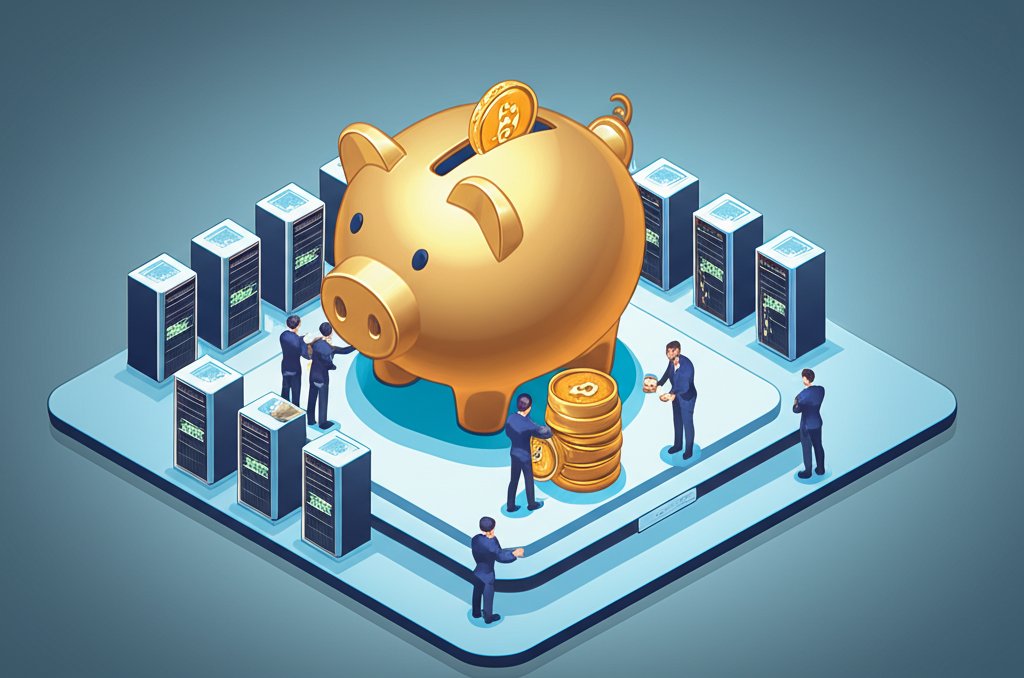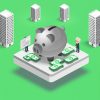Peter Thiel. The name conjures images of Silicon Valley power, contrarian investments, and a future shaped by technology. But who is Peter Thiel, really? This peter thiel biography probes beyond the headlines to explore the life, career, and philosophies of this influential figure – from his early days to his current ventures.
At a glance: Peter Thiel’s Key Takeaways
- PayPal Mafia: A pivotal figure in the creation and success of PayPal.
- Facebook Investor: Early investment cemented his status as a tech visionary.
- Contrarian Thinker: Challenges conventional wisdom across tech, politics, and philosophy.
- Libertarian Ideals: Strong advocate for individual freedom and limited government.
- Future-Focused: Believes in technological innovation as the key to a better future.
From Frankfurt to Silicon Valley: The Early Years
Born in Frankfurt, Germany, in 1967, Peter Andreas Thiel’s family moved to the United States when he was just one year old, eventually settling in Foster City, California. This early exposure to the burgeoning tech scene of the Bay Area undoubtedly shaped his worldview. But it wasn’t just location; Thiel’s intellectual curiosity led him down a path of academic excellence, culminating in a B.A. in Philosophy and a J.D. from Stanford Law School.
While at Stanford, he co-founded The Stanford Review, a conservative-libertarian newspaper. This venture foreshadowed his later willingness to buck trends and challenge established norms, a characteristic that would define his career.
The PayPal Years: Building a Digital Revolution
Thiel’s entrepreneurial journey truly began with PayPal. In 1998, he co-founded Confinity, which later merged with X.com to become PayPal. As CEO, he guided the company through its initial public offering (IPO) in 2002. Later that year, eBay acquired PayPal for a staggering $1.5 billion.
PayPal’s success wasn’t just about financial gain; it was about fundamentally changing how people transacted online. It laid the groundwork for the digital economy we know today. The “PayPal Mafia,” a group of former PayPal employees who went on to found or invest in other successful tech companies (including Elon Musk, Reid Hoffman, and others), became a symbol of Silicon Valley’s innovative spirit.
Betting on the Future: Thiel’s Venture Capital Empire

Thiel didn’t rest on his PayPal laurels. Instead, he used his knowledge and capital to back other promising startups.
The Facebook Gamble
In 2004, he made what is now considered one of the most prescient investments in tech history: a $500,000 investment in Facebook for a 10.2% stake. This bet solidified his reputation as a visionary investor and demonstrated his ability to identify companies with the potential to disrupt entire industries.
Palantir Technologies: Data Analysis for a Complex World
Also in 2004, Thiel co-founded Palantir Technologies, a data analytics company specializing in national security and defense applications. Palantir’s work, often shrouded in secrecy, has been both lauded and criticized for its role in government surveillance and law enforcement.
Founders Fund: Investing in the Next Generation
In 2005, Thiel co-founded Founders Fund, a venture capital firm with a unique philosophy: to invest in companies building revolutionary technologies. Founders Fund’s portfolio includes some of the most successful and impactful companies of the 21st century, including SpaceX, Airbnb, and Stripe.
Beyond the Valley: Diversifying Investments
Thiel’s investment strategy extends beyond Silicon Valley. He established Clarium Capital, a global macro hedge fund, and Mithril Capital and Valar Ventures to pursue venture capital investments on a broader scale. While these ventures haven’t always been as high-profile as his early successes, they demonstrate his commitment to exploring new opportunities and supporting innovation across various sectors. Keep an eye on how Thiels projected 2025 net worth influences these investment decisions.
Thiel’s Thought-Provoking (and Sometimes Controversial) Ideas
Thiel is known for his contrarian views and willingness to challenge conventional wisdom. He’s a self-described libertarian and has expressed strong opinions on a range of topics, from education to politics.
The Thiel Fellowship: Encouraging Innovation Outside Academia
In 2010, he established the Thiel Fellowship, a program that awards $100,000 to young entrepreneurs to drop out of college and pursue their business ideas. This initiative reflects Thiel’s belief that traditional education can stifle innovation and that the most groundbreaking ideas often come from those who dare to challenge the status quo.
Seasteading: Building Floating Cities
Thiel co-founded the Seasteading Institute, a project aimed at creating floating cities beyond traditional governments. This ambitious endeavor reflects his libertarian ideals and his desire to create new, more自由 societies.
Cryptocurrency and Bullish Global: Embracing Decentralization
Thiel is a strong proponent of cryptocurrency and has invested in exchanges like Bullish Global. This support for decentralized finance aligns with his libertarian values and his belief in the power of technology to disrupt traditional institutions. It’s interesting to note that Thiels Net Worth Explained provides insights into the implications of these crypto investments.
Politics and Philosophy: A Contrarian Voice in Silicon Valley

Thiel’s political views have often placed him at odds with the prevailing culture of Silicon Valley.
Supporting Donald Trump: A Controversial Endorsement
He endorsed Donald Trump in 2016, breaking with the vast majority of the tech industry. This decision drew criticism from many in Silicon Valley, but Thiel defended his support for Trump, arguing that the US needed a leader who could challenge the status quo.
Funding the Gawker Lawsuit: A Battle Against Media
Thiel secretly funded Hulk Hogan’s lawsuit against Gawker Media, which ultimately led to the company’s bankruptcy. This action raised concerns about the power of wealthy individuals to suppress free speech, but Thiel argued that Gawker had engaged in unethical and harmful journalism.
Key Tenets of Thiel’s Philosophy
Thiel’s views are rooted in a few core principles:
- Independent thinking: He emphasizes the importance of questioning assumptions and thinking for oneself. “The most contrarian thing of all is not to oppose the crowd but to think for yourself.”
- Belief in secrets: Thiel believes that groundbreaking innovation requires uncovering secrets that others have overlooked. “If you want to create a better future, you must believe in secrets.”
- Individual agency: He champions the idea that individuals have the power to shape their own destinies. “A startup is the largest endeavor over which you can have definite mastery.”
- Innovation and the future: Thiel is a strong advocate for technological progress and believes that innovation is essential for creating a better future. “We wanted flying cars, instead we got 140 characters.”
Common Questions About Peter Thiel
Here are some frequently asked questions about Peter Thiel, addressing common misconceptions and providing clarity on his multifaceted persona:
- Is Peter Thiel a libertarian? Yes, Thiel identifies as a libertarian. His political and economic views align with libertarian principles, including limited government intervention, individual freedom, and free markets.
- Why did Peter Thiel support Donald Trump? Thiel supported Trump because he believed Trump offered a necessary break from the status quo and a chance to address what he saw as stagnation in American society.
- What is the Thiel Fellowship? The Thiel Fellowship is a program that provides $100,000 and mentorship to young people who drop out of college to pursue entrepreneurial ventures. It reflects Thiel’s belief in the importance of innovation and challenging traditional educational paths.
- What is Palantir known for? Palantir Technologies is known for its data analytics software, which is used by governments and organizations for national security, defense, and law enforcement purposes.
- What are Peter Thiel’s views on education? Thiel is critical of the rising cost of higher education and believes that it is not always the best path for everyone. He advocates for alternative paths to success, such as entrepreneurship and vocational training.
Peter Thiel’s Legacy: Disrupting the Status Quo
Peter Thiel’s impact on the world is undeniable. He has redefined success in the tech industry, shaped the venture capital landscape, and sparked important conversations about politics, philosophy, and the future of society. He’s a figure that generates strong opinions, and his legacy is sure to be debated for years to come..
Building Your Own Contrarian Vision
What can we learn from Peter Thiel’s life and career? Here are a few key takeaways:
- Think for yourself: Don’t be afraid to challenge conventional wisdom and question assumptions.
- Seek out secrets: Look for opportunities that others have overlooked.
- Embrace innovation: Support and invest in technologies that have the potential to change the world.
- Take risks: Don’t be afraid to bet on your own ideas, even if they seem unconventional.
Thiel’s story is a reminder that true progress often comes from those who dare to think differently and challenge the status quo. Whether you agree with his views or not, there’s no denying his influence and his commitment to shaping a future that aligns with his vision.









